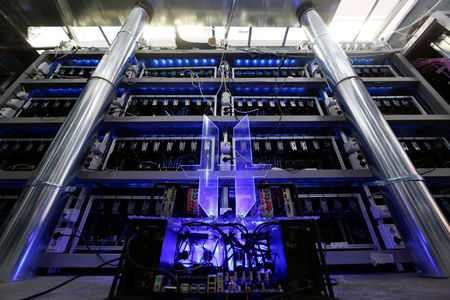
Investing.com — U.S. knowledge heart energy capability is ready to just about double by 2027, pushed by the rising demand for high-performance computing (HPC) to assist Generative AI (GenAI), based on a notice from Morgan Stanley on Monday.
The funding financial institution’s analysis initiatives that U.S. knowledge heart energy will enhance from 40 gigawatts (GW) in 2024 to 79 GW by 2027, a pointy rise fueled by the rising necessities of AI applied sciences.
“We expect that data center growth in the US and globally will accelerate rapidly in the coming years, driven predominantly by growth in data centers for high-performance compute (HPC) for GenAI,” they wrote.
Morgan Stanley’s estimates are based mostly on a bottom-up mannequin that calculates energy demand utilizing projected volumes of GPUs and customized silicon.
Globally, the financial institution predicts that energy utilization for GenAI will surge from 68 terawatt-hours (TWh) in 2024 to 378 TWh by 2027. This enhance will considerably impression complete international knowledge heart energy utilization, which is predicted to rise from 443 TWh in 2024 to 877 TWh by 2027.
They add that the expansion of the information heart market can also be mirrored within the asset-backed securities (ABS) market.
Morgan Stanley explains that knowledge heart ABS issuance is on monitor to hit a report $8 billion in 2024, bringing the entire excellent to $25 billion—up 37% year-over-year. By 2027, they state that the ABS market might attain $49 billion if the present development holds, pushed by extra operators accessing this funding supply and a rising investor base.
Morgan Stanley anticipates that a lot of this knowledge heart growth will contain new builds, which might price between $30-$34 million per megawatt (MW) for full setups, or $8-$12 million per MW excluding GPUs and servers.
Nevertheless, they notice that the time required to carry new knowledge facilities on-line is lengthening, significantly in areas like California, the place initiatives now take as much as 125 months. This delay is seen as underscoring the significance of retrofitting current knowledge facilities, akin to these used for bitcoin mining, to satisfy the speedy demand for AI and HPC knowledge processing.




